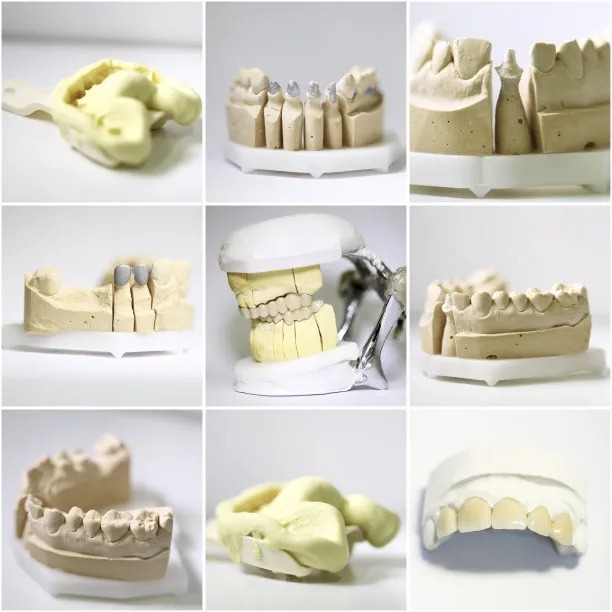Summary: Root canal treatment is a vital dental procedure that ensures the health of a tooth by removing infected pulp and preserving its structure. However, both patients and dentists must take essential precautions to enhance the treatment experience, minimize anxiety, and ensure successful outcomes. This article delves into four critical areas: understanding the procedure, communication and preparation, post-treatment care, and choosing the right dental professional. By addressing these aspects, we can create an environment that promotes confidence, satisfaction, and optimal dental health for everyone involved.
1. Understanding the Root Canal Procedure

Understanding the root canal procedure is crucial for cultivating a cooperative environment between the patient and the dentist. Patients should educate themselves about the step-by-step process involved in the treatment, which includes diagnosis, local anesthesia, accessing the contaminated pulp, cleaning the canals, and sealing the tooth. This knowledge helps reduce anxiety and allows patients to ask informed questions.
Furthermore, dentists should provide comprehensive explanations of what the patient should expect during the treatment. Utilizing models or digital images can facilitate better understanding. Transparency about potential discomfort and the long-term benefits of the procedure can significantly ease patients’ worries.
Lastly, understanding the purpose and importance of a root canal reinforces patient compliance with aftercare instructions. When patients comprehend the necessity of safeguarding their teeth, they are more likely to adhere to the preventive measures recommended post-treatment.
2. Effective Communication and Preparation
Effective communication between patients and dentists lays the foundation for a successful root canal treatment experience. Scheduling a pre-treatment consultation enables patients to articulate their concerns and expectations. Dentists can establish rapport and assess the patients emotional state, helping tailor the treatment pace to their unique needs.
Moreover, carefully preparing the treatment environment is vital. The dentists office should be equipped with modern tools, hygienic protocols, and a calming atmosphere. Patients often experience elevated stress levels in unfamiliar environments; thus, a welcoming setting can promote relaxation and a smoother experience.
Patients must also be encouraged to complete all required dental exams before the treatment. Proper diagnostic imaging, such as X-rays, allows dentists to accurately assess root canal anatomy, leading to effective treatment planning. This thorough preparation can optimize success rates and mitigate potential complications during the procedure.
3. Follow-Up and Post-Treatment Care
Proper follow-up and post-treatment care are essential for ensuring a successful outcome. Dentists should establish clear and detailed instructions outlining care routines after the procedure. This includes guidelines on pain management, dietary restrictions, and signs of complications to watch for.
Patients must be informed about the typical healing timeline and when to seek immediate attention. A proactive follow-up schedule, including a phone call or appointment within a few days, can help identify any concerns early and allow for swift interventions if necessary.
Furthermore, proper oral hygiene should be emphasized in post-treatment care. Patients can be educated on the importance of maintaining dental hygiene through regular brushing, flossing, and routine dental check-ups. This proactive approach minimizes the risk of reinfection and preserves the long-term health of the treated tooth.
4. Choosing the Right Dental Professional
Choosing the right dental professional influences the overall experience and outcome of root canal treatment. Patients should conduct thorough research to find dentists who specialize in endodontics and have received rave reviews from previous patients. Reading testimonials and checking credentials can ensure that the professional is exceptionally qualified and reputable.
In addition, patients should feel comfortable discussing their concerns and expectations when meeting potential dentists. An ideal dental professional should exhibit patience, empathy, and the willingness to engage in open dialogue about treatment plans. This rapport is vital in alleviating anxiety and fostering trust.
Lastly, a dentist who uses advanced technology and modern techniques will enhance the quality of the treatment. This includes utilizing digital radiography, operating microscopes, and ultrasonic devices that can significantly increase the efficiency and success rate of the procedure.
Summary:
In conclusion, ensuring a successful root canal treatment experience involves a careful combination of understanding the procedure, effective communication, thorough post-treatment care, and the selection of a qualified dental professional. By addressing these essential aspects, both patients and dentists can work together effectively, leading to improved outcomes and satisfaction.
This article is compiled by Vickong Dental and the content is for reference only.
Vickong Dental
Vickong Dental is a large medical group established in Hong Kong in 2008 by professors from well-known medical universities in Guangdong and Hong Kong, as well as medical doctors from key national '985' universities (including Master's supervisors and senior professors). The chain of branches brings together expert dentists with PhDs and Master's degrees from Hong Kong and Mainland China, committed to providing high-quality dental treatment.
"Vickong Dental Practices the University Motto of 'Healing and Serving Society,' with a Stable Operation for Sixteen Years. It Has Been honored with Hong Kong Enterprise Leaders's Choice,' and is a Global Trusted Implant Center for the Nobel Implant System. Recommended by Hong Kong Metro Broadcast and Guangdong Television, it Serves Customers from Over Thirty Countries and Regions, Gaining the Trust and Favor of Citizens from the Guangdong-Hong Kong-Macau Greater Bay Area and Surrounding Cities.

Thousands of customers' unanimous praise
The most recognized and highly recommended dental service by customers in the Guangdong-Hong Kong-Macau Greater Bay Area
We Ensure You Receive Detailed Care and Attention Here
Hong Kong standards, Shenzhen prices, Your Trusted English-speaking dentists

Vickong Dental Medical-Grade Instrument Disinfection Process
Vickong Dental Medical-Grade Instrument Disinfection Process

Vickong Dental Chain: A Warm and Comfortable Environment for Treatment






Appointment Hours

Q&A
Why choose Vickong Dental?
Vickong Dental practices the university motto 「Medicine to Benefit Society」, with each branch bringing together highly qualified dentists with doctoral and master’s degrees from Hong Kong and the Mainland, and has maintained seventeen years of steady operation。Recipient of 「2024 Hong Kong Enterprise Leaders Brand」, 「2025 Hong Kong Enterprise Leaders Brand」, a Nobel Biocare Global Trusted Implant Center, and a brand recommended by Metro Radio Hong Kong and Guangdong TV。
To date, we have served customers from more than thirty countries and regions,earning exceptionally high word-of-mouth recognition and trusted recommendations from residents across the Guangdong-Hong Kong-Macao Greater Bay Area and surrounding cities
We have eight major branches in Zhuhai、Shenzhen,and a consultation and service assurance center in Hong Kong,so you can book a free consultation at any time for any questions,which is very reassuring.
If I do not accept the quotation after the CT scan, will I be charged??
No! As long as the actual treatment has not started, you will not be charged any fees.
Will there be any additional charges during the treatment process?
No, there won’t be any additional charges. Before treatment begins, we will clearly explain the treatment plan and its corresponding fees. Only after the patient agrees and signs the consent form will we proceed with the dental service.
Can I pay in Hong Kong dollars?
Yes. Vickong Dental accepts payment in Hong Kong dollars. The amount will be converted based on the exchange rate of the day, and the applicable rate will be clearly communicated to you in advance.
Can I reschedule my appointment at any time?
Yes. Please contact us via **WeChat** or **WhatsApp** as early as possible, providing your original appointment time and details, along with your preferred new date and time slot for rescheduling.













